203 results found for 'Energy'. Prev |1|2|3|4|5|6|7|8|9 | Next | View 100 per page
Low relevance matches: 9 other results may be of interest to you. Show low relevance matches
Electrical Circuits - Electrical energy can be transferred and transformed in electrical circuits and can be generated from a range of sources ACSSU155 Year 8 Physical Sciences
Energy Forms - Energy appears in different forms, including movement (kinetic energy), heat and potential energy, and energy transformations and transfers cause change within systems ACSSU176 Year 9 Biological Sciences
Ecology - Ecosystems consist of communities of interdependent organisms and abiotic components of the environment; matter and energy flow through these systems ACSSU179 Year 9 Chemical Sciences
Chemical Reactions - Chemical reactions, including combustion and the reactions of acids, are important in both non-living and living systems and involve energy transfer ACSSU182 Year 9 Physical Sciences
Energy Transfer - Energy transfer through different mediums can be explained using wave and particle models ACSSU190 Year 10 Physical Sciences
Energy Conservation - Energy conservation in a system can be explained by describing energy transfers and transformations ACSSU219 Year 6 Physical Sciences
Alternative Energies - Energy from a variety of sources can be used to generate electricity ACSCH018 Year 11 Chemical fundamentals
Properties and structure of atoms - Atoms can be modelled as a nucleus surrounded by electrons in distinct energy levels, held together by electrostatic forces of attraction between the nucleus and electrons; atoms can be represented using electron shell diagrams (all electron shells or val ACSCH019 Year 11 Chemical fundamentals
Properties and structure of atoms - Flame tests and atomic absorption spectroscopy are analytical techniques that can be used to identify elements; these methods rely on electron transfer between atomic energy levels ACSCH036 Year 11 Chemical fundamentals
Chemical reactions - All chemical reactions involve the creation of new substances and associated energy transformations, commonly observable as changes in the temperature of the surroundings and/or the emission of light ACSCH037 Year 11 Chemical fundamentals
Chemical reactions - Endothermic and exothermic reactions can be explained in terms of the Law of Conservation of Energy and the breaking and reforming of bonds; heat energy released or absorbed can be represented in thermochemical equations ACSCH073 Year 11 Molecular interactions and reactions
Rates of chemical reactions - Catalysts, including enzymes and metal nanoparticles, affect the rate of certain reactions by providing an alternative reaction pathway with a reduced activation energy, hence increasing the proportion of collisions that lead to a chemical change ACSPH020 Year 11 Thermal nuclear and electrical physics
Heating processes - Provided a substance does not change state, its temperature change is proportional to the amount of energy added to or removed from the substance; the constant of proportionality describes the heat capacity of the substance ACSPH022 Year 11 Thermal nuclear and electrical physics
Heating processes - Two systems in contact transfer energy between particles so that eventually the systems reach the same temperature; that is, they are in thermal equilibrium ACSPH030 Year 11 Thermal nuclear and electrical physics
Ionising radiation and nuclear reactions - Alpha, beta and gamma radiation have sufficient energy to ionise atoms ACSPH039 Year 11 Thermal nuclear and electrical physics
Electrical circuits - Energy is conserved in the energy transfers and transformations that occur in an electrical circuit ACSPH040 Year 11 Thermal nuclear and electrical physics
Electrical circuits - The energy available to charges moving in an electrical circuit is measured using electric potential difference, which is defined as the change in potential energy per unit charge between two defined points in the circuit ACSPH041 Year 11 Thermal nuclear and electrical physics
Electrical circuits - Energy is required to separate positive and negative charge carriers; charge separation produces an electrical potential difference that can be used to drive current in circuits ACSPH042 Year 11 Thermal nuclear and electrical physics
Electrical circuits - Power is the rate at which energy is transformed by a circuit component; power enables quantitative analysis of energy transformations in the circuit ACSPH065 Year 11 Linear Motion and Waves
Linear motion and force - Energy is conserved in isolated systems and is transferred from one object to another when a force is applied over a distance; this causes work to be done and changes to kinetic and/or potential energy of objects ACSPH066 Year 11 Linear Motion and Waves
Linear motion and force - Collisions may be elastic and inelastic; kinetic energy is conserved in elastic collisions ACSPH073 Year 11 Linear Motion and Waves
Waves - A mechanical system resonates when it is driven at one of its natural frequencies of oscillation; energy is transferred efficiently into systems under these conditions ACSPH111 Year 12 Gravity and electromagnetism
Electromagnetism - Conservation of energy, expressed as Lenz’s Law of electromagnetic induction, is used to determine the direction of induced current ACSPH136 Year 12 Revolutions in modern physics
Quantum theory - On the atomic level, electromagnetic radiation is emitted or absorbed in discrete packets called photons; the energy of a photon is proportional to its frequency; and the constant of proportionality, Planck’s constant, can be determined experimentally (fo ACSPH139 Year 12 Revolutions in modern physics
Quantum theory - The Bohr model of the hydrogen atom integrates light quanta and atomic energy states to explain the specific wavelengths in the hydrogen spectrum and in the spectra of other simple atoms; the Bohr model enables line spectra to be correlated with atomic en ACSBL052 Year 11 Biodiversity and the interconnectedness of life
Ecosystem dynamics - Photosynthesis is a biochemical process that in plant cells occurs in the chloroplast and that uses light energy to organic compounds; the overall process can be represented as a balanced chemical equation ACSBL053 Year 11 Biodiversity and the interconnectedness of life
Ecosystem dynamics - Cellular respiration is a biochemical process that occurs in different locations in the cytosol and mitochondria and metabolises organic compounds, aerobically or anaerobically, to release useable energy in the form of ATP; the overall process can be repr ACSPH021 Year 11 Thermal nuclear and electrical physics
Heating processes - Change of state involves internal energy changes to form or break bonds between atoms or molecules; latent heat is the energy required to be added to or removed from a system to change the state of the system ACSPH067 Year 11 Linear Motion and Waves
Waves - Waves are periodic oscillations that transfer energy from one point to another ACSPH070 Year 11 Linear Motion and Waves
Waves - Mechanical waves transfer energy through a medium; mechanical waves may oscillate the medium or oscillate the pressure within the medium ACSPH140 Year 12 Revolutions in modern physics
Quantum theory - On the atomic level, energy and matter exhibit the characteristics of both waves and particles ACSPH135 Year 12 Revolutions in modern physics
Quantum theory - Atomic phenomena and the interaction of light with matter indicate that states of matter and energy are quantised into discrete values ACSPH105 Year 12 Gravity and electromagnetism
Electromagnetism - When a charged body moves or is moved from one point to another in an electric field and its potential energy changes, work is done on or by the field
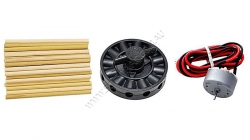
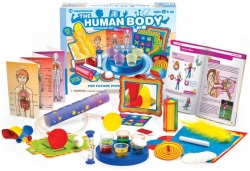
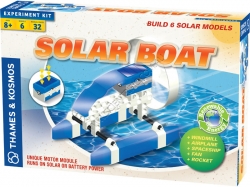
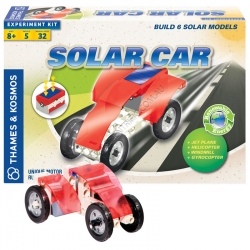
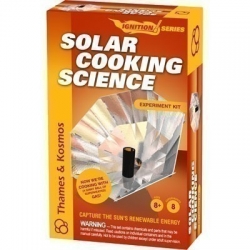
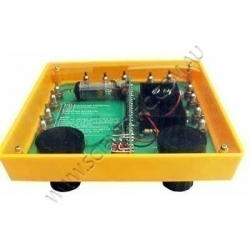
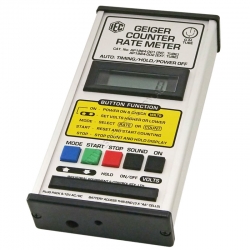
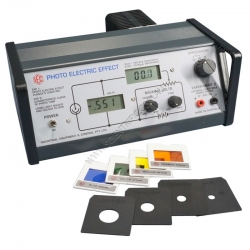
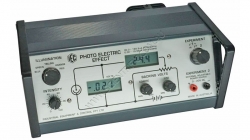
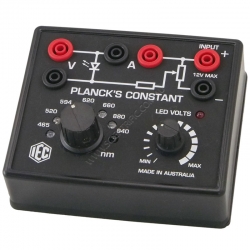
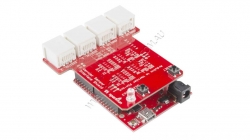
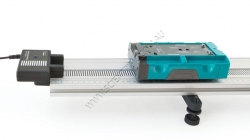

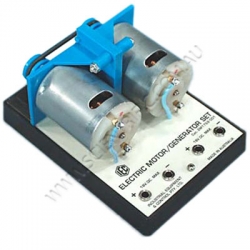
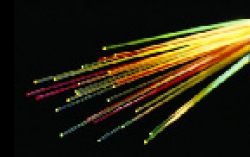




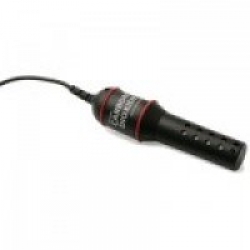


203 results found for 'Energy'. Prev |1|2|3|4|5|6|7|8|9 | Next | View 100 per page
Low relevance matches: 9 other results may be of interest to you. Show low relevance matches
Curriculum resources related to 'Energy'
ACSSU097 Year 6 Physical SciencesElectrical Circuits - Electrical energy can be transferred and transformed in electrical circuits and can be generated from a range of sources ACSSU155 Year 8 Physical Sciences
Energy Forms - Energy appears in different forms, including movement (kinetic energy), heat and potential energy, and energy transformations and transfers cause change within systems ACSSU176 Year 9 Biological Sciences
Ecology - Ecosystems consist of communities of interdependent organisms and abiotic components of the environment; matter and energy flow through these systems ACSSU179 Year 9 Chemical Sciences
Chemical Reactions - Chemical reactions, including combustion and the reactions of acids, are important in both non-living and living systems and involve energy transfer ACSSU182 Year 9 Physical Sciences
Energy Transfer - Energy transfer through different mediums can be explained using wave and particle models ACSSU190 Year 10 Physical Sciences
Energy Conservation - Energy conservation in a system can be explained by describing energy transfers and transformations ACSSU219 Year 6 Physical Sciences
Alternative Energies - Energy from a variety of sources can be used to generate electricity ACSCH018 Year 11 Chemical fundamentals
Properties and structure of atoms - Atoms can be modelled as a nucleus surrounded by electrons in distinct energy levels, held together by electrostatic forces of attraction between the nucleus and electrons; atoms can be represented using electron shell diagrams (all electron shells or val ACSCH019 Year 11 Chemical fundamentals
Properties and structure of atoms - Flame tests and atomic absorption spectroscopy are analytical techniques that can be used to identify elements; these methods rely on electron transfer between atomic energy levels ACSCH036 Year 11 Chemical fundamentals
Chemical reactions - All chemical reactions involve the creation of new substances and associated energy transformations, commonly observable as changes in the temperature of the surroundings and/or the emission of light ACSCH037 Year 11 Chemical fundamentals
Chemical reactions - Endothermic and exothermic reactions can be explained in terms of the Law of Conservation of Energy and the breaking and reforming of bonds; heat energy released or absorbed can be represented in thermochemical equations ACSCH073 Year 11 Molecular interactions and reactions
Rates of chemical reactions - Catalysts, including enzymes and metal nanoparticles, affect the rate of certain reactions by providing an alternative reaction pathway with a reduced activation energy, hence increasing the proportion of collisions that lead to a chemical change ACSPH020 Year 11 Thermal nuclear and electrical physics
Heating processes - Provided a substance does not change state, its temperature change is proportional to the amount of energy added to or removed from the substance; the constant of proportionality describes the heat capacity of the substance ACSPH022 Year 11 Thermal nuclear and electrical physics
Heating processes - Two systems in contact transfer energy between particles so that eventually the systems reach the same temperature; that is, they are in thermal equilibrium ACSPH030 Year 11 Thermal nuclear and electrical physics
Ionising radiation and nuclear reactions - Alpha, beta and gamma radiation have sufficient energy to ionise atoms ACSPH039 Year 11 Thermal nuclear and electrical physics
Electrical circuits - Energy is conserved in the energy transfers and transformations that occur in an electrical circuit ACSPH040 Year 11 Thermal nuclear and electrical physics
Electrical circuits - The energy available to charges moving in an electrical circuit is measured using electric potential difference, which is defined as the change in potential energy per unit charge between two defined points in the circuit ACSPH041 Year 11 Thermal nuclear and electrical physics
Electrical circuits - Energy is required to separate positive and negative charge carriers; charge separation produces an electrical potential difference that can be used to drive current in circuits ACSPH042 Year 11 Thermal nuclear and electrical physics
Electrical circuits - Power is the rate at which energy is transformed by a circuit component; power enables quantitative analysis of energy transformations in the circuit ACSPH065 Year 11 Linear Motion and Waves
Linear motion and force - Energy is conserved in isolated systems and is transferred from one object to another when a force is applied over a distance; this causes work to be done and changes to kinetic and/or potential energy of objects ACSPH066 Year 11 Linear Motion and Waves
Linear motion and force - Collisions may be elastic and inelastic; kinetic energy is conserved in elastic collisions ACSPH073 Year 11 Linear Motion and Waves
Waves - A mechanical system resonates when it is driven at one of its natural frequencies of oscillation; energy is transferred efficiently into systems under these conditions ACSPH111 Year 12 Gravity and electromagnetism
Electromagnetism - Conservation of energy, expressed as Lenz’s Law of electromagnetic induction, is used to determine the direction of induced current ACSPH136 Year 12 Revolutions in modern physics
Quantum theory - On the atomic level, electromagnetic radiation is emitted or absorbed in discrete packets called photons; the energy of a photon is proportional to its frequency; and the constant of proportionality, Planck’s constant, can be determined experimentally (fo ACSPH139 Year 12 Revolutions in modern physics
Quantum theory - The Bohr model of the hydrogen atom integrates light quanta and atomic energy states to explain the specific wavelengths in the hydrogen spectrum and in the spectra of other simple atoms; the Bohr model enables line spectra to be correlated with atomic en ACSBL052 Year 11 Biodiversity and the interconnectedness of life
Ecosystem dynamics - Photosynthesis is a biochemical process that in plant cells occurs in the chloroplast and that uses light energy to organic compounds; the overall process can be represented as a balanced chemical equation ACSBL053 Year 11 Biodiversity and the interconnectedness of life
Ecosystem dynamics - Cellular respiration is a biochemical process that occurs in different locations in the cytosol and mitochondria and metabolises organic compounds, aerobically or anaerobically, to release useable energy in the form of ATP; the overall process can be repr ACSPH021 Year 11 Thermal nuclear and electrical physics
Heating processes - Change of state involves internal energy changes to form or break bonds between atoms or molecules; latent heat is the energy required to be added to or removed from a system to change the state of the system ACSPH067 Year 11 Linear Motion and Waves
Waves - Waves are periodic oscillations that transfer energy from one point to another ACSPH070 Year 11 Linear Motion and Waves
Waves - Mechanical waves transfer energy through a medium; mechanical waves may oscillate the medium or oscillate the pressure within the medium ACSPH140 Year 12 Revolutions in modern physics
Quantum theory - On the atomic level, energy and matter exhibit the characteristics of both waves and particles ACSPH135 Year 12 Revolutions in modern physics
Quantum theory - Atomic phenomena and the interaction of light with matter indicate that states of matter and energy are quantised into discrete values ACSPH105 Year 12 Gravity and electromagnetism
Electromagnetism - When a charged body moves or is moved from one point to another in an electric field and its potential energy changes, work is done on or by the field
Products related to 'Energy'

KidWind Basic Turbine Building Parts 10 Pack
KIDWIND BASIC TURBINE BUILDING PARTS 10 PACK
This classroom pack is great for students who don’t want a ready-made wind turbine. It is ideal for educators who want an affordable way for each students or student group to do hands-on experiments with wind power.
Includes...
Order code: KW-BTPART10

Fluorescent Fibres Set of 10
300 or 500mm long lengths of each of our 10 different fluorescent fibres. Made of polystyrene, each absorbs short wavelength energy and emits it at a longer wavelength. The emitted light is incredibly vivid and incredibly bright and is of narrow wavelength. It creates a fantastic...
Order code: SC1032

Little Labs: The Human Body
Learn about the human body by doing experiments with your five senses that show you how your body works. By exploring the outside of your body with hands-on experiments, you can learn a lot about the inside anatomy of the body.
Examine your fingerprints to learn how you are un...
Order code: 602093



Solar Boat
SOLAR BOAT
Construct a solar-electric boat and five additional models using an innovative motor module that can be powered by a solar cell or batteries.
Build a solar catamaran driven by a fanboat-like propeller, a windmill, airplane model, spaceship model, fan and rocke...
Order code: 622411

Solar Car
SOLAR CAR
Build any one of 5 models including a solar-electric car using an innovative motor module that can be powered by a solar cell or batteries.
Build a race car that drives across the floor, a helicopter with spinning rotor blades, a windmill with spinning turbin...
Order code: 622817

Solar Cooking Science Experiment Kit
Capture the Sun's Renewable Energy.
Construct a parabolic solar cooker with 14 interlocking foil pieces that reflect and focus the sun’s radiation onto a small cooking container. Heat water or melt chocolate to make an environmentally friendly fondue. Learn about solar th...
Order code: 659226



IEC Franck Hertz Experiment Set
IEC FRANCK HERTZ EXPERIMENT SET
The IEC 'Franck Hertz' experiment board consists of an electron valve configured as a miniature laboratory to detect the behaviour of Xenon gas atoms when bombarded with electrons. It is self-contained with an electron tube, a Thyratron, t...
Order code: AP1870-001

IEC Geiger Counter Rate Internal GM Tube
IEC GEIGER COUNTER RATEMETER WITH INTERNAL GEIGER MULLER TUBE
A fully portable Geiger Counter with an inbuilt Geiger Muller tube and LCD display powered by 3xAA batteries.
The instrument is light, very robust and is useful for both classroom and field work.
The larg...
Order code: AP1884-001

IEC Photo-Electric Effect - Planck's Constant Apparatus
IEC PHOTOELECTRIC EFFECT AND PLANCK'S CONSTANT
A well-designed instrument with two digital meters to simultaneously indicate both the current through the internal photo-cell and the backing voltage applied to the cell.
Experiments can be performed in the following area...
Order code: AP2341-002



IEC Photo-Electric Effect LED Planck's Constant Apparatus
IEC PHOTOELECTRIC EFFECT LED PLANCK'S CONSTANT
A version of IEC's Photo Electric Effect with LED light sources and two digital meters to simultaneously display both the current through the internal photo-cell in nanoamps and the backing voltage applied to the cell to brin...
Order code: AP2342-001

IEC Planck's Constant - Low Cost Apparatus
IEC PLANCK'S CONSTANT SIMPLE APPARATUS
A low cost instrument used to determine Planck’s Constant and discover that the wavelength of light determines the energy in the photons … not the amount of light.
The voltage that causes 2 microamps to flow through each selected ...
Order code: AP2343-001



Vernier Arduino Interface Shield
VERNIER ARDUINO INTERFACE SHIELD
The Vernier Arduino Interface Shield provides a convenient way to make connections from Arduino® microcontrollers to Vernier sensors. The Vernier Arduino Interface Shield plugs directly on top of the Arduino® and adds two BTA (analog) and...
Order code: BT-ARD

Vernier Dynamics Cart and Track System with Motion Encoder
VERNIER DYNAMICS CART AND TRACK SYSTEM WITH MOTION ENCODER
The Dynamics Cart and Track System with Motion Encoder is a revolutionary way for physics students to study dynamics. The Motion Encoder adds an optical position sensing system to record cart motion and eliminates...
Order code: DTS-EC



Vernier Dynamics Track System Encoder Long
VERNIER DYNAMICS TRACK SYSTEM WITH MOTION ENCODER LONG
The Dynamics Cart and Track System with Motion Encoder is a revolutionary way for physics students to study dynamics. The Motion Encoder adds an optical position sensing system to record cart motion and eliminates the...
Order code: DTS-EC-LONG


IEC Circuits Kit Complete ASEP
IEC CIRCUITS KIT COMPLETE CARD OF WIRES
This is a small but useful low cost kit for creating basic circuits using batteries, globes and different types of wire. The concept of heat generation, energy transformation and the operation of fuses in electrical circuits can be...
Order code: EM0970-001

IEC Electric Motor Generator
IEC ELECTRIC MOTOR GENERATOR 12V DC
Great for experiments in energy conversion, the IEC Electric Motor Generator Set consists of two medium sized DC electric motors securely mounted on a small base. The motors are coupled together by pulleys and a small rubber belt. The p...
Order code: EM1759-001



Fluorescent Fibre Blue 0.5mmx500mm
Made of polystyrene, it absorbs short wavelength energy and emits it at a longer wavelength. The emitted light is incredibly vivid and incredibly bright and is of narrow wavelength. It creates a fantastic display even in daylight.
Order code: IF-810075

Fluorescent Fibre Amber 1mmx500mm
Made of polystyrene, it absorbs short wavelength energy and emits it at a longer wavelength. The emitted light is incredibly vivid and incredibly bright and is of narrow wavelength. It creates a fantastic display even in daylight.
Order code: IF-810083

Fluorescent Fibre Red 1mmx500mm
Made of polystyrene, it absorbs short wavelength energy and emits it at a longer wavelength. The emitted light is incredibly vivid and incredibly bright and is of narrow wavelength. It creates a fantastic display even in daylight.
Order code: IF-810087

Fluorescent Fibre Red 1.5mmx300mm
Made of polystyrene, it absorbs short wavelength energy and emits it at a longer wavelength. The emitted light is incredibly vivid and incredibly bright and is of narrow wavelength. It creates a fantastic display even in daylight.
Order code: IF-810088

Fluorescent Fibre Green 1.5mmx300mm
Made of polystyrene, it absorbs short wavelength energy and emits it at a longer wavelength. The emitted light is incredibly vivid and incredibly bright and is of narrow wavelength. It creates a fantastic display even in daylight.
Order code: IF-810089

Key Experiment - Photosynthesis and Respiration Rates
Description:
KEBS3A investigates changes in rates of photosynthesis under different light conditions.
Curriculum Topics:
• Biology: Cells as the basis of life
Principle:
• Plants make sugar, storing the energy of the sun into chemical energy, by the ...
Order code: KEBS3A
Key Experiment Rates of Chemical Reactions
KESC13: Determine the reaction rate for the decomposition of hydrogen peroxide or the reaction between citric acid and bicarbonate of soda.
Curriculum Topics
Chemistry: Chemical reactions: reactants, products and energy change
Chemistry: Rates of chemical react...
Order code: KECS13

KidWind Airfoil Balsa Blade Sheets - 10 pack
KIDWIND AIRFOIL BALSA BLADE SHEETS 10 PACK
This balsa is pre-shaped in an airfoil shape. Real wind turbine blades use this airfoil shape to generate lift and reduce drag, making for highly efficient rotors.
Experiment with advanced blade designs and explore Bernoulli’s P...
Order code: KW-ABBS10




KidWind Advanced Wind Experiment Kit Nacelle
KIDWIND ADVANCED WIND EXPERIMENT KIT NACELLE
This kit contains the unassembled parts of the Advanced Wind Turbine Nacelle. Build your own wind turbine and experiment with wind power.
This kit enables a number of advanced experiments, especially with GENPack generator m...
Order code: KW-AWXN
203 results found for 'Energy'. Prev |1|2|3|4|5|6|7|8|9 | Next | View 100 per page


